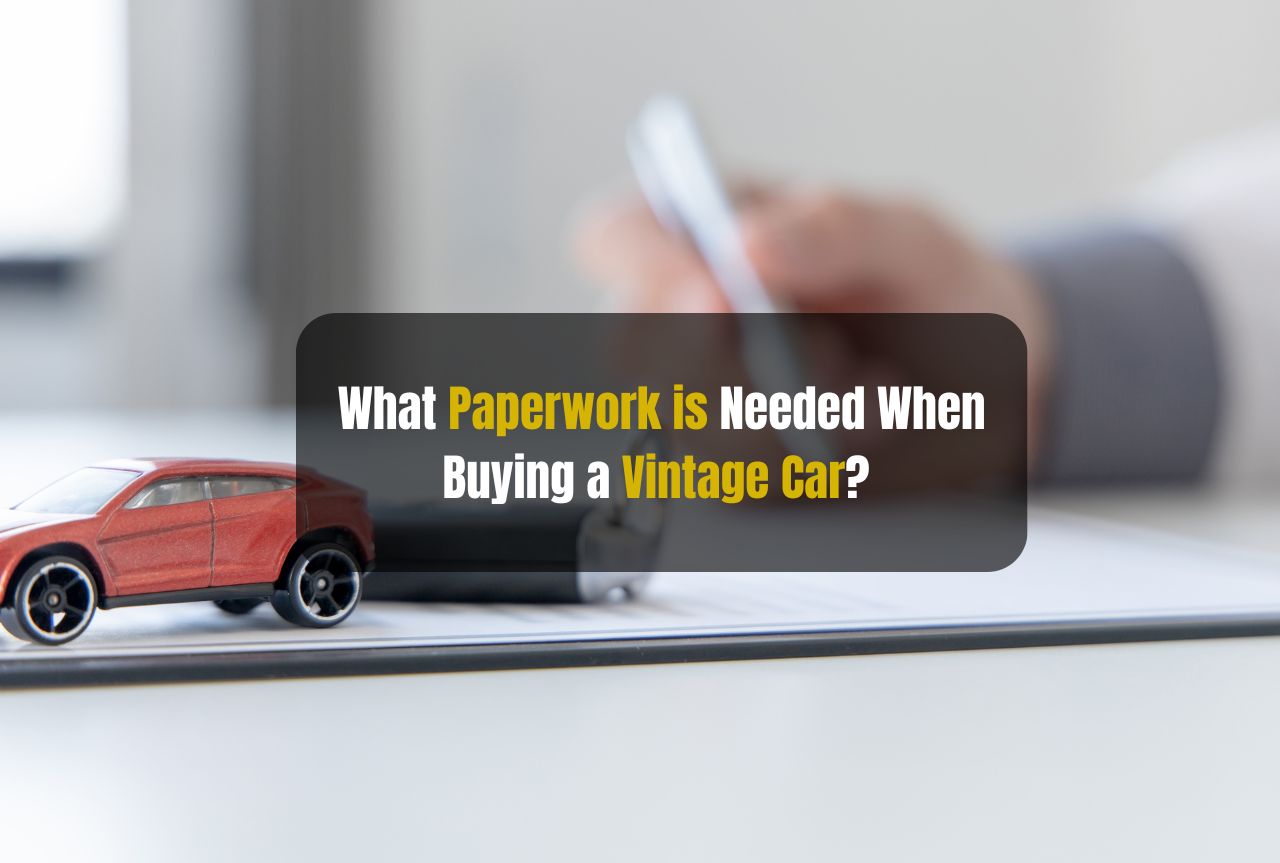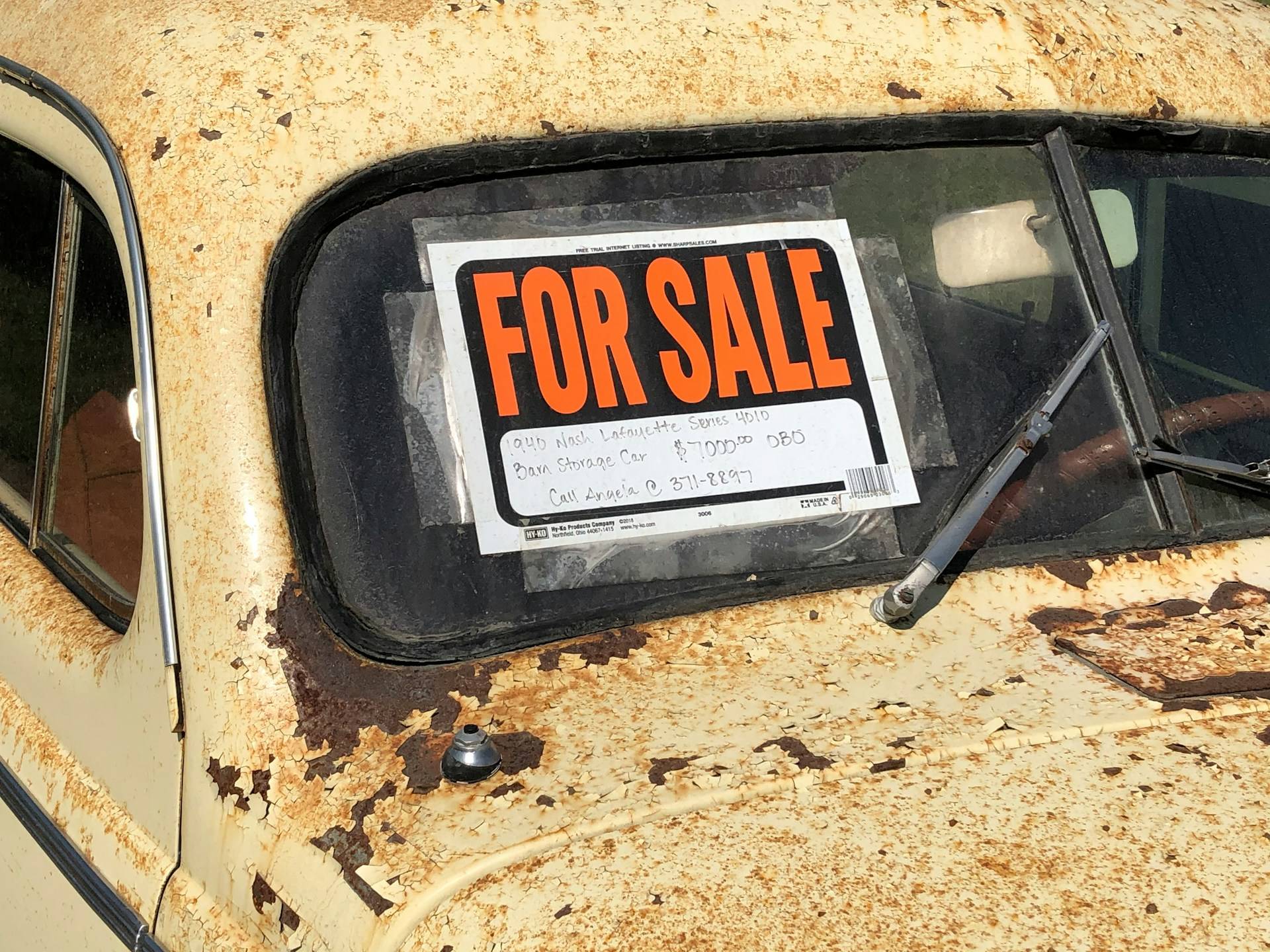Buying a vintage car is always exciting. A vintage vehicle is sure to contain history and character, making the purchase not only an investment but also potentially a delightful possession.
However, with such an exciting prospect comes a process that demands careful procedures, especially as it relates to what paperwork is required for a legal purchase.
Without proper documentation, a vintage car purchase may result in fraudulency and possible legal matters on the part of both the buyer and the seller. We will discuss all kinds of paperwork that one might need to have at two key stages of the process: the title transfers and a specialized insurance form authorization.
Why paperwork is so important when buying a vintage car?
Proper documentation helps to determine ownership and acts as a record of the vehicle’s history. In the case of vintage cars, this proves to be critical. Titles, bills of sale, records of maintenance, and certificates of authenticity are the most common papers I’ve run into when dealing with these vehicles.
Title Transfer
The title is the single most important document when buying any vintage car. It serves as proof of ownership, and without it, you can’t register the vintage car in your name.
A clear title means you are buying the car from someone who has the right to sign it over and that it is free and clear of all liens and other legal claims on it.
- Check the VIN: Does the Vehicle Identification Number (VIN) on the title correspond with the VIN that appears on the car? An out-of-place VIN is a surefire sign of problems.
- Clear Title: The title should be free of liens. The lien, if any, must be cleared by the seller before the title transfer.
- Transfer Process: Have both the seller and the buyer sign the title. Requirements vary state by state, so you should confirm what your local departments of motor vehicles require.
Bill of Sale
This document must contain the terms of the sale (the price of the vehicle, the Buyer’s and Seller’s names), the name of the authority receiving the payment, and be signed by the Authorized Agent.
VIN, make model, year, sale price, and date of sale.
- Signatures: Both parties must sign the bill of sale to make it legally binding.
- Notarisation: Some states require the bill of sale to be notarised. Be sure to check your local laws.
Vehicle History Report
The vehicle history report is a document that provides full information about a car’s past. This report gives numerous details about previous accidents and some sort of troubles with the title and odometer readings.
- Accident history: If the car has been in a crash, a quick search could reveal this information.
- Title Issues: Ensure there are no title discrepancies or issues like salvage titles.
- Odometer Readings: Have the mileage checked to see if it matches the age and condition of the car.
Maintenance Records
Maintenance records are particularly useful for old cars as they show if the previous owner maintained the car well and possibly can give an indication of the condition.
- Routine maintenance: Evidence-tracked service records: Oil change, brake inspection, tire rotation.
- Major repair record: Look for any major repairs or restoration work that could change the car’s value.
- Original Parts: Used for repair? A car’s value could be affected if it’s been patched together with reconditioned parts rather than the originals.
Certificates of Authenticity
Vintage car certificates of authenticity, for instance, can make the price soar. Such documents would vouch that the car is an original and might detail where it was produced, what its original specs were, and how few are left in circulation.
- Documents: Schemes might include certificates of authenticity from a manufacturer, a classic car club, or another source.
- Verification: Ensure the certificate is genuine and issued by a credible authority.
- Features: The certificate should include as many details as possible about the car’s original specifications and production history.
Emissions and Safety Inspections
If your state requires emissions and safety inspections to register such a vehicle, you will first need to have the vintage car inspected to ensure it meets your local standards for environmental regulations and safety.
- Emissions Test: Find out if your state requires an emissions test for all used car sales, and ensure the car passes before signing on the dotted line.
- Safety Inspection: Make sure to check for brakes, lights, seat belts, etc.
- Exemptions: Many pre-1981 vintage cars or motorcycles are exempt from these provisions; check with your local DMV.
Insurance Documentation
Vintage cars require bespoke insurance, which cannot be secured through standard auto programs. Because of their usage profiles and value characteristics, they are seldom covered in standard auto insurance.
- Classic Car Insurance: Make sure your policy is designed for classic and vintage cars; seeking out an agreed-value policy assures you’ll be compensated the car’s full appraised amount in the event it’s a total loss.
- Usage Restrictions: Some classic car insurance policies will have mileage restrictions, or you might have to keep it in an enclosed garage.
You can protect yourself by documenting the car (photographs, appraisals, and maintenance records) so that you get the right coverage from the start.
Registration and License Plates
Once you have all the paperwork, it’s time to register the car and obtain license plates. This process varies by state, but typically, you bring the title, bill of sale, and proof of insurance to the DMV.
- Registration Forms: Fill out the required registration forms from your local DMV.
- Proof of Insurance: Provide proof of your classic car insurance policy.
- Fees: Pay any required registration fees, which may be higher for vintage cars.
Import and Export Documents
When buying a foreign car in one country and taking it across the border to another country, special paperwork is required due to import and export regulations.
- Customs Forms: Complete the necessary customs forms for importing a car.
- Pay duty Fees: Import duty fees are payable and depend on the value of the car and the country of origin.
- Compliance: The car must comply with federal safety and emissions standards in the US; if it does not, it requires an exemption.
The Bottom Line
Driving away with your vintage vehicle after purchasing a great car feels great. However, not paying proper attention to the paperwork that comes with buying a vintage car can be very expensive. You need to handle all the documentation related to the car to avoid breaking the law.
Documenting the history of your car so that it can gain value is also very important. Managing title transfers, bills of sale, vehicle history reports, and insurance documents is crucial when buying a vintage vehicle.







Leave a Comment